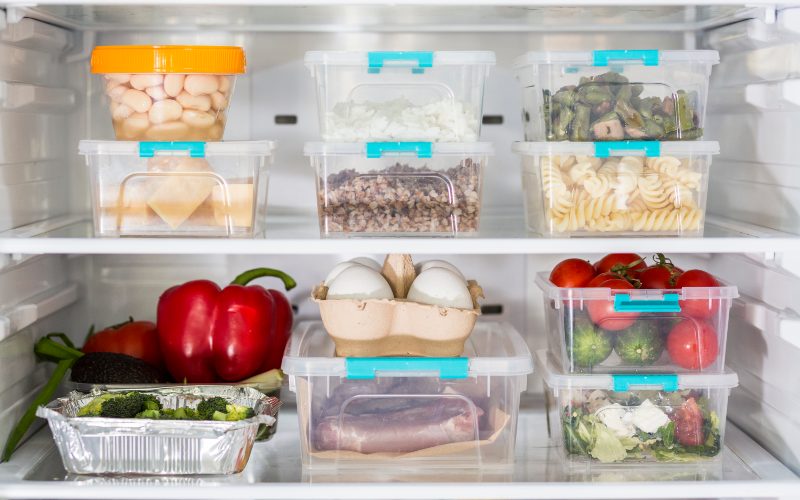Nine fridge habits that could be ruining your food

Experts recommend spacing out containers and keeping vents clear. If your fridge is always full, consider decluttering or reorganizing by category.
If your vegetables keep wilting, milk spoils faster than expected, or leftovers smell “off” after just a day or two, the culprit might not be the food; it could be your fridge.
Many households assume refrigeration automatically preserves everything, but food safety experts warn that how you store groceries matters just as much as where. The fridge, designed to slow bacterial growth, can ironically become a breeding ground for spoilage if misused.
More To Read
- How to make sweet and savoury plantains at home
- Bariis: Beginner’s guide to making the perfect Somali rice
- 10 common foods you should never refrigerate
- 10 common foods you should never refrigerate: Experts explain why
- Basbousa: The classic cake bringing families together
- Robots, smart tables and Somali flavours: Eastleigh’s AK’s Restaurant is the future of dining
1. Temperature trouble: Not cold enough
According to the World Health Organisation (WHO), food should be kept below 5°C to prevent bacterial growth.
However, research by the US Food and Drug Administration (FDA) shows nearly half of domestic refrigerators operate above that safe range, allowing microbes like Salmonella and E. coli to thrive.
“Most people don’t regularly check their fridge temperature,” said Nairobi-based nutritionist Wincate Wangari. “They assume that if it feels cold, it’s working, but even slight fluctuations can spoil perishables.”
Keep your fridge at 3–5°C and your freezer at -18°C. A simple fridge thermometer can help ensure consistent cooling.
2. Overstuffing the shelves
Overloading the fridge is another common mistake.
“When air can’t circulate properly, temperatures become uneven,” Wangari explained. “The back might freeze items while the front stays too warm.”
This uneven cooling causes yoghurt, cheese, and cooked food to spoil prematurely. Overpacking also blocks air vents, forcing the compressor to overwork.
Experts recommend spacing out containers and keeping vents clear. If your fridge is always full, consider decluttering or reorganising by category.
3. The door is not a safe zone
Fridge doors seem ideal for condiments, but not for perishables.
“The door is the warmest spot,” she added. “Each time you open it, warm air rushes in, shortening the life of milk, eggs, and juice.”
Other Topics To Read
Store perishables on middle shelves where temperatures are stable. Use door racks for sauces, butter, and bottled drinks.
4. Storing the wrong foods together
Some foods emit ethylene gas, which accelerates spoilage in others.
“Fruits like apples, bananas, and avocados can cause leafy greens, cucumbers, and berries to decay faster,” Wangari said.
Separate fruits and vegetables into different drawers. Use the “crisper” drawer for veggies to trap moisture and reduce ethylene exposure.
5. Warm food in a cold fridge
Putting hot food directly into the fridge raises internal temperatures and causes condensation.
“Let food cool to room temperature before refrigerating,” the nutritionist advised.
Hot dishes should sit uncovered for about 30 minutes before sealing and storing.
6. Improper packaging and containers
Poorly sealed containers allow air and moisture in, speeding up spoilage.
Plastic wrap or unsealed bags don’t prevent oxidation, especially in meats and cut fruits. Use airtight glass or BPA-free plastic containers.
Avoid storing acidic foods like tomato sauce in metal containers, which can cause chemical reactions and taint the flavour.
7. Ignoring “first in, first out”
Even a well-functioning fridge won’t help if you forget what’s inside.
“People keep adding new groceries on top of old ones,” Wangari noted. “By the time you reach the back, that spinach has turned to mush.”
Use the First In, First Out (FIFO) method: move older items to the front before adding new ones. Transparent containers help track expiry dates.
8. Not cleaning often enough
Spills and condensation feed mould and bacteria.
A study by the National Sanitation Foundation (NSF) found vegetable drawers often contain traces of Listeria and E. coli.
Experts recommend deep-cleaning every two to three months with mild detergent or vinegar. Wipe spills immediately to prevent spread.
9. Power cuts and frequent door opening
In Kenya and other parts of Africa, power outages contribute to spoilage.
“During a blackout, avoid opening the fridge unless necessary,” Wangari said.
A closed fridge keeps food cold for up to four hours; a full freezer stays safe for about 48 hours.
If outages are frequent, store perishables in smaller portions or invest in a backup generator.
If your fridge seems to be “betraying” you, it’s likely a combination of temperature, organisation, and storage habits.
“Think of your fridge as a system,” she said. “Each section serves a purpose. When you understand that, your food stays fresher longer and you waste less.”
Maintaining consistent temperature, proper organisation, and regular cleaning can extend your groceries’ shelf life by days, even weeks.
A well-kept fridge isn’t just about freshness; it’s about saving money, reducing waste, and keeping your family safe and healthy.
Top Stories Today










































